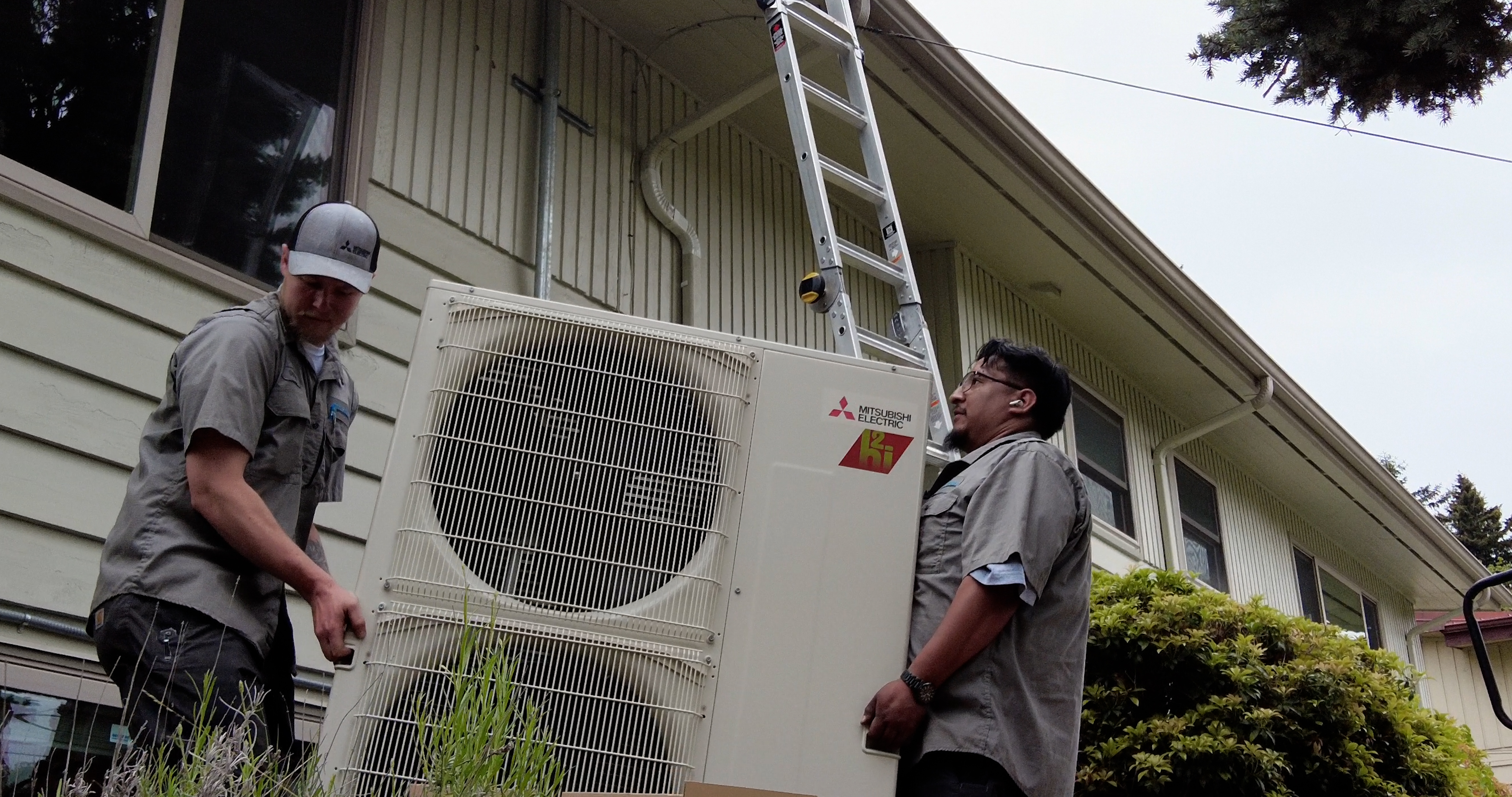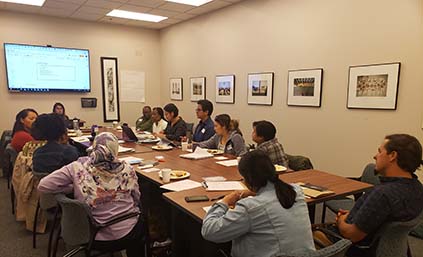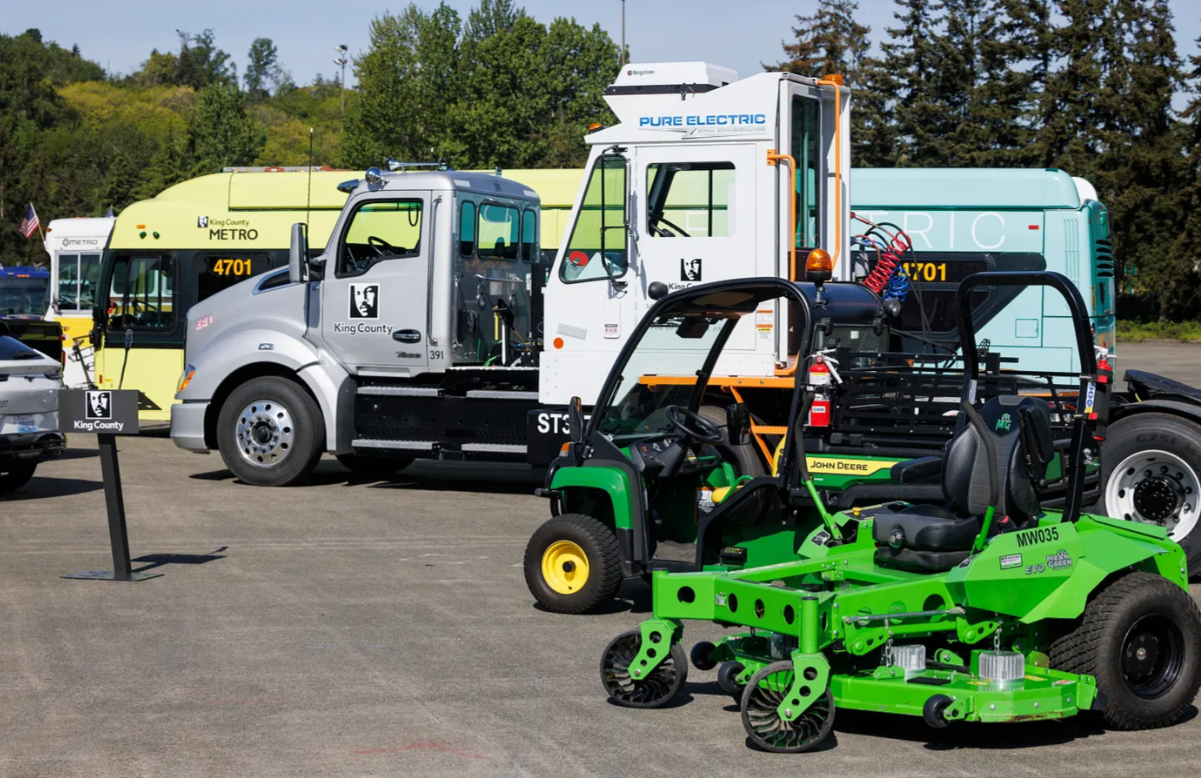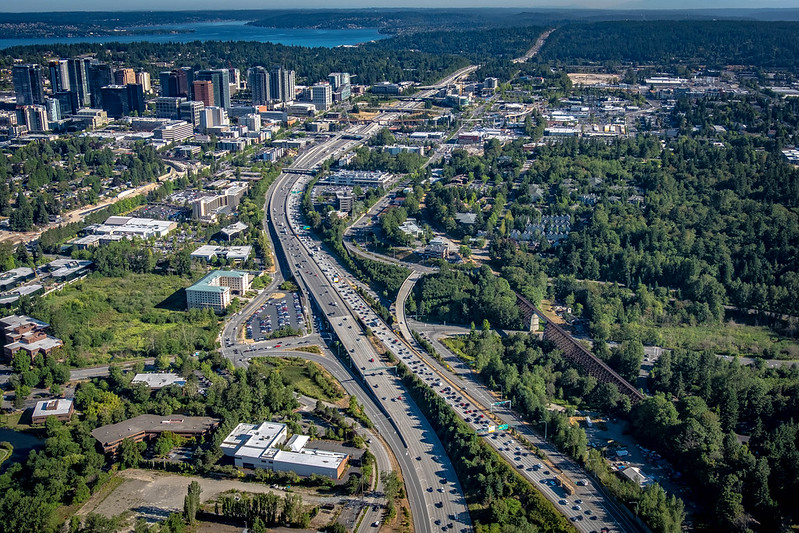About King County climate action
Learn about the King County's climate work, history, vision and mission.
Who we are:
The Executive Climate Office (ECO) works to coordinate, elevate, and accelerate climate action across the county. ECO manages King County’s Strategic Climate Action Plan (SCAP); collaborates with county departments, frontline communities and other partners on climate-related work; and manages programs to promote decarbonization, climate resilience and equitable access to green jobs.

Our Mission:
The Executive Climate Office grows and empowers a coalition of people, organizations, and systems taking action to address the causes and impacts of climate change so every person, place, and the environment can thrive.
Our Values:
- Act with urgency and intention
- Be responsible stewards
- Build partnerships
- Lead through local action
- Lead with racial justice and equity
- One team
- Prioritize health and co-benefits
- Respect all people
- Respond to community needs and priorities
- Seek systemic solutions
- Use and develop best available science
History:
King County has long been a leader on climate action, but prior to 2023 most efforts to reduce emissions, ensure climate equity and prepare a skilled green workforce were spread across departments. In 2023, Executive Dow Constantine hired the county's first Climate Director and announced the launch of the "Executive Climate Office."
Initially, the office included staff joining from King County Metro, the Department of Local Services and the Department of Natural Resources and Parks. Since then, the office has grown to include more than 20 full-time staff members, fellows and interns.
In addition to running a number of programs and coordinating partnerships, ECO is responsible for stewarding the Strategic Climate Action Plan (SCAP), which charts goals and tracks progress on climate-related initiatives.
In 2024, King County released a biennial report charting progress since the 2020 Strategic Climate Action Plan (SCAP). Some key findings and progress measures:
- King County and its 39 cities strengthened shared greenhouse gas emissions reduction targets to 50% below 2007 levels by 2030, 75% below 2007 levels by 2040, and 95% below 2007 levels and net carbon neutral by 2050.
- King County lowered its own governmental greenhouse gas emissions by 30% from 2007 to 2022.
- King County is leading regional actions to achieve 2030 and 2050 greenhouse gas targets with the passage of strong energy codes for commercial buildings, investments in community-led
- projects that reduce emissions, reimagining waste management through Re+, and expanding affordable housing with transit-oriented development.
- King County is leading decarbonization of government operations by moving one of the nation’s largest bus fleets towards zero-emissions, developing technical specifications for using low embodied carbon concrete, scaling up restoration of county-owned forest and natural areas, and strengthening green building standards for county capital projects.
- King County staff are working to partner with frontline communities in ways that address the root causes and the symptoms of racial and social inequities.
- The Green Jobs Strategy, finalized in 2023, is well underway and has been recognized as a model for other municipalities across the country.
- King County completed the country’s first Wildfire Risk Reduction Strategy in 2023 and a countywide Extreme Heat Mitigation Strategy in 2024 to prepare for the impacts of climate change.
Office programs
ECO coordinates the creation and tracking of the Strategic Climate Action Plan (SCAP), elevates the work of other departments to promote climate action and justice, manages programs in several focus areas and participates in regional collaborative partnerships. Learn about our office's programs below.
Building a skilled green workforce

King County is committed to building a skilled and diverse workforce across the green career spectrum. That includes connecting frontline communities to living-wage employment opportunities.
ECO coordinates the county's Green Jobs Strategy, aimed at ensuring and promoting a strong skilled workforce for clean energy and related industries. ECO also manages JumpStart, which offers young adults climate workshops, paid on-the-job training and work experience with local contractors.
Building decarbonization

Buildings are one of the largest contributors to greenhouse gas emissions. ECO, alongside county and regional partners, administers several programs to increase energy efficiency and reduce emissions – while helping King County residents.
That work includes Energize, which installs low- to no- cost heat pumps and other services to eligible customers. ECO also works to raise awareness about C-PACER, an alternative loan program promoting energy-efficiency and building resiliency.
Climate equity

A core piece of King County’s Strategic Climate Action Plan (SCAP) is to center “sustainable and resilient frontline communities.” That means working directly with the people most impacted by climate change to seek and achieve solutions.
ECO coordinates a “Climate Equity Community Task Force,” offers a climate justice learning series, and administers a community grant program for organizations taking action on climate.
Climate preparedness

King County is already experiencing the impacts of climate change. ECO is working with partners to assess what's happening now, plan for the future, and ensure communities remain resilient in the face of those changes.
ECO recently launched and is working to implement the county’s first wildfire risk reduction and extreme heat mitigation strategies. The office also takes part in the Puget Sound Climate Preparedness Collaborative and tracks progress on preparedness measures in the county's Strategic Climate Action Plan.
Electric Vehicles

ECO’s Electric Vehicle (EV) program seeks to coordinate and accelerate local and regional EV adoption and improve access to EV charging countywide, especially in underserved areas.
The program works to remove barriers to EV integration within county operations, and pursues and implements collaborative funding opportunities for public, multi-family, and fleet charging. ECO partners with a range of CBO’s, non-profits, businesses, charging providers, and local governments to implement this work.
Greenhouse Gas Reduction

Greenhouse gases are the primary cause of recent climate change. To avoid the most serious impacts of climate change, we need major reductions in greenhouse gas emissions.
Measuring and understanding these emissions is important for our government operations and community at-large. ECO coordinates and invests in efforts to monitor, track and reduce greenhouse gases.
Learn more and get involved
Here's how to stay updated on work within King County ECO:
- Subscribe to our newsletter for monthly updates
Thanks for visiting and doing your part for climate action, equity and resilience.
 Translate
Translate